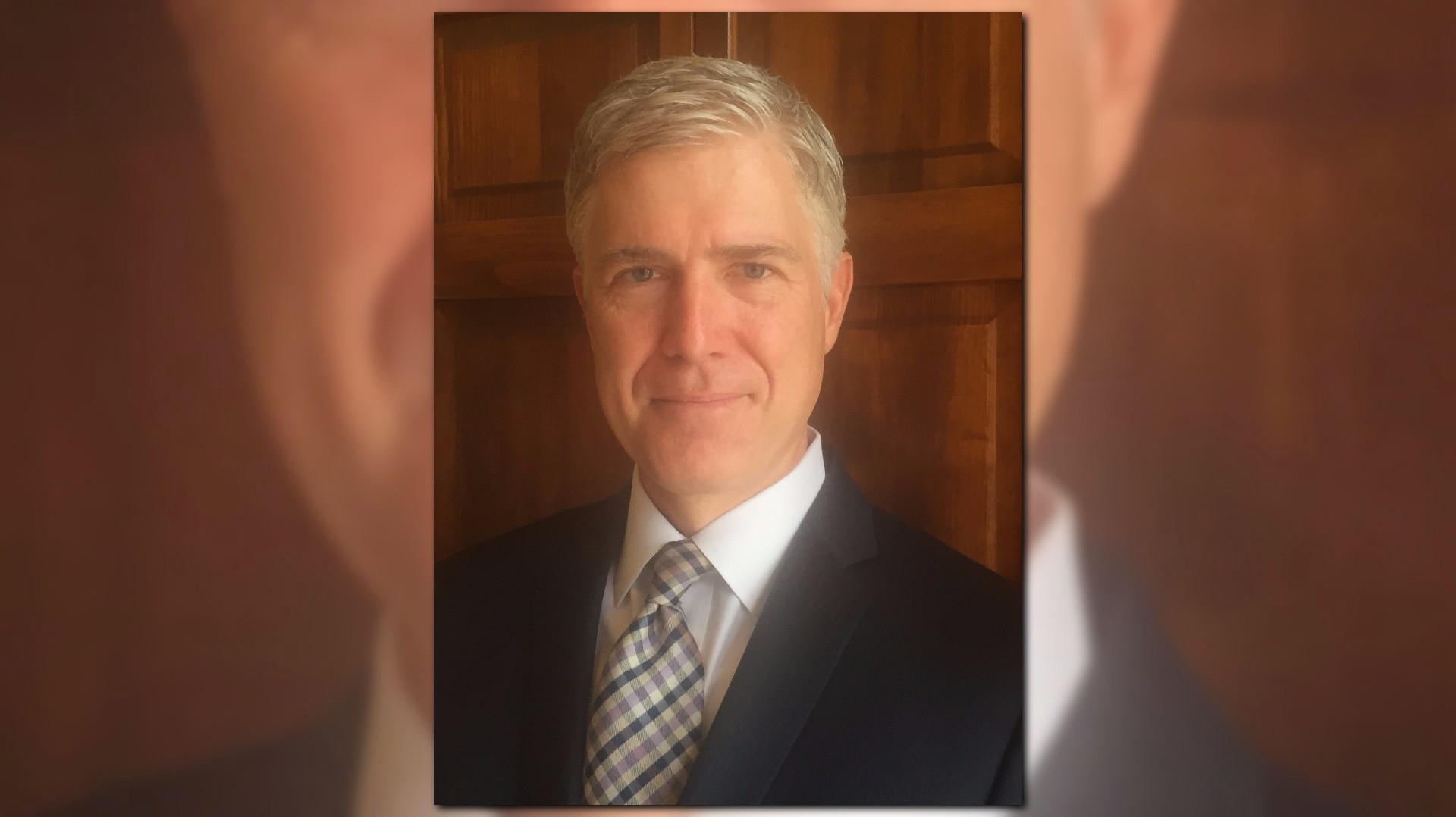Nearly a full year after Justice Antonin Scalia's death left the Supreme Court shorthanded, President Trump is poised to nominate a replacement who's three decades younger, setting off a pitched battle over the direction of the nation's highest court.
Trump's nominee is set to be unveiled from the Oval Office at 8 p.m. Tuesday, with most attention focused on two federal appeals court judges from opposite sides of the country: Neil Gorsuch of Colorado and Thomas Hardiman of Pennsylvania.
Gorsuch, 49, is a Scalia acolyte who believes judges should interpret laws as they are written and enforce the Constitution as the nation's framers intended. He writes with a Scalia-like flair and has degrees from Columbia, Harvard and Oxford.
--
Who is Neil Gorsuch?
He's a smarty-pants, with degrees from Columbia, Harvard and Oxford.
President George W. Bush nominated Neil Gorsuch to be an 10th Circuit judge in 2006.
He works at the Federal Courthouse at 18th and Stout in Denver, named after former Supreme Court Justice Byron Whizzer White, who Gorsuch clerked for at one time.
He is against euthanasia and assisted suicide -- which voters just approved in Colorado.
He ruled in favor of Hobby Lobby's owners, say they did not have to provide birth control under Obamacare because it would conflict with their religious beliefs.
He teaches at CU-Boulder.
His mother, Anne Gorsuch Burford, was the first woman to be director of the EPA.
He is a "textualist," essentially meaning the law should be enforced verbatim, rather than taking the purpose or intent of the law into consideration.
Some extra facts from The Daily Camera:
He is respected by Democrats.
He's a Colorado guy who enjoys fly-fishing and hiking. He and his wife and two daughters live on a 3-acre lot, complete with horses, chickens and goats.
--
Hardiman, 51, is less widely known but has a Trump in his corner: The president's sister, Maryanne Trump Barry, sits with him on the U.S. Court of Appeals for the 3rd Circuit. He has a strong conservative record on issues affecting criminal law and the Second Amendment.
Those two emerged from a list of 21 people Trump was considering, topped initially by federal appeals court judges William Pryor of Alabama and Diane Sykes of Wisconsin. But Pryor has a more controversial record on issues such as abortion and gay rights, possibly making Senate confirmation risky, and the 59-year-old Sykes projects to fewer years on the bench.
"This particular choice is one that the president takes very seriously," White House press secretary Sean Spicer said Tuesday afternoon. "He knows it will impact the course of our country’s jurisprudence for generations to come."
Trump's nominee will face intense opposition from Senate Democrats and liberal interest groups, which already have scheduled a 9 p.m. protest at the Supreme Court to follow the announcement.
Republicans hold a 52-seat majority in the Senate, large enough to block former president Barack Obama's choice of federal appeals court Judge Merrick Garland last year but not sufficient to overcome a filibuster if Democrats seek to bottle up the nomination as revenge for what many consider a stolen Supreme Court seat. Unless Trump can win over eight of them, Republicans will have to change the Senate's rules, eliminating the 60-vote threshold needed to bring the nomination to the floor. Trump endorsed such a move last week.
The White House is hoping to have the seat filled in time for the court's April sitting, the last of the 2016 term, when several cases could be considered involving such issues as religious liberty and transgender rights. That likely was one reason for announcing the nomination two days earlier than initially planned.
“There’s a lot of cases that I think are in the cue right now that have the potential to be 4-4 (votes)," Spicer said. "I think the idea is to get this individual confirmed as soon as possible, just to get the docket moving. That’s probably the biggest priority right now.”
Conservative interest groups were preparing the initial phase of what they said would be a $10 million advertising campaign on behalf of the nominee. The first ads will go up in four states that Trump won decisively in November where Democratic senators face tough re-election battles: Indiana, Missouri, Montana and North Dakota.
Replacing Scalia will not shift the court ideologically from where it was a year ago, but it will put conservatives one seat short of a commanding majority. With the seat filled, the longest-serving justice, Anthony Kennedy, once again will be the man in the middle — siding with conservatives in most cases but occasionally with liberals on issues such as abortion, affirmative action and gay rights.
Still, Democrats understand demographics: Kennedy, appointed by President Ronald Reagan in 1988, is 80 years old and considering retirement. President Bill Clinton's two justices, Ruth Bader Ginsburg and Stephen Breyer, are 83 and 78, respectively. One or more retirements would give Trump an opportunity to shift the court to the right, possibly for generations to come.
For that reason, some Democrats have said recently that they should consider Scalia's replacement on his or her merits and save their more vehement opposition for the next nomination fight, if it comes during Trump's presidency.
Contributing: David Jackson, Erin Kelly and Donovan Slack


